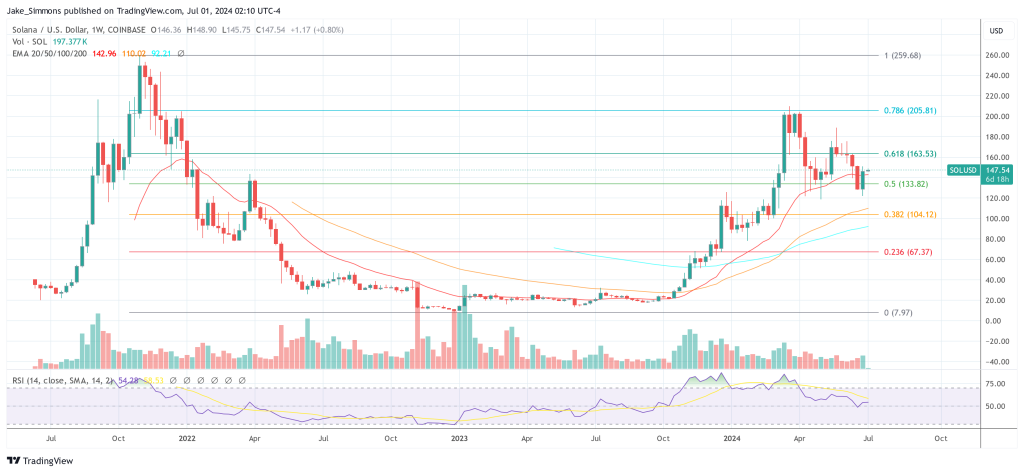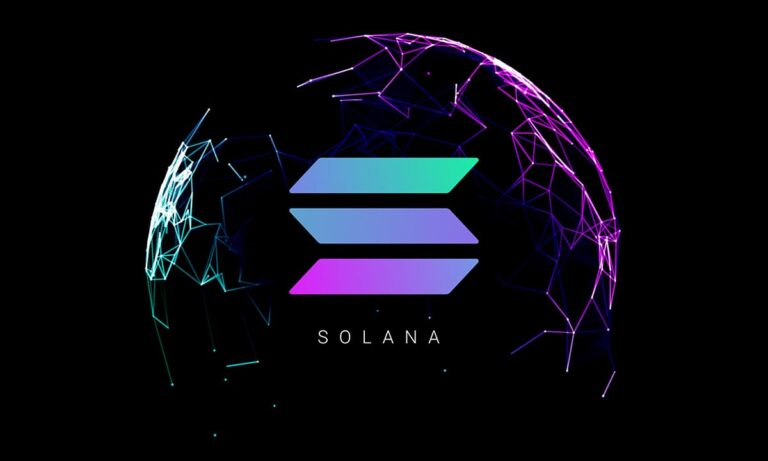Alex Thorn, Head of Research at Galaxy Digital, recently provided a analysis on Solana Exchange Traded Products (ETP) spot filings by investment firms VanEck and 21Shares. depositsentered into with the U.S. Securities and Exchange Commission (SEC) on June 28, represents an aggressive move to integrate Solana (SOL) into the structured framework of regulated financial markets, similar to those established for Bitcoin and Ethereum.
VanEck’s proposal, as outlined in its S-1 filing, aims to launch a commodities-based trust that will directly own Solana, allowing the ETP to closely track the asset’s market price. Unlike some crypto ETPs, this product will not engage in staking the assets held.
Following this announcement, the market reacted positively, with the price of SOL marking an increase of approximately 8%. However, the filing is still in its early stages, with no detailed operational structures such as the depository, cash depository and authorized participants. These aspects are usually addressed in subsequent amendments as the product moves towards final approval.
Why the chances of a Solana Spot ETF are slim
According to the latest updates, VanEck has not yet filed the required Form 19b-4, which triggers the SEC’s formal review process. According to Bloomberg analyst James Seyffart, the typical review period, once initiated, extends up to 240 days. So, if VanEck files soon, the final decision could be expected around March 15, 2025. This process involves several regulatory checkpoints and public comment periods that are standard in the approval workflow for new financial products.
The SEC currently considers Solana an unregistered security, primarily due to ongoing litigation against Coinbase, the leading cryptocurrency exchange. This classification complicates the approval process for a Solana-based ETP. Given that the Securities & Exchange Commission currently alleges in its filing against Coinbase that Solana is an unregistered security, absent a substantial change in the SEC’s position, it is likely that this claim will be denied,” said Thorn.
Historically, the SEC has taken a cautious approach towards crypto ETPs. The approval process generally follows a sequential path starting with regulated futures markets, then ETPs based on those futures contracts, and finally, U.S.-based spot ETPs. Bitcoin and Ethereum ETPs have taken this path with varying degrees of resistance and success.
It’s important to note that the SEC’s previous refusal to approve Bitcoin ETPs was based on concerns about market size and oversight. The turning point came with a D.C. Circuit Court of Appeals decision in August 2023which supported the sufficiency of futures market oversight. This decision facilitated the approval of Bitcoin spot ETPs, which began in January 2024, followed by Ethereum ETPs in May 2024.
Odds could change quickly
The recently past FIT21 law in the U.S. House of Representatives, which demarcates the regulatory boundaries between the SEC and the Commodity Futures Trading Commission (CFTC), could play a crucial role in the future regulation of cryptocurrencies. This legislation specifies which digital assets should be treated as commodities and which as securities. Such legislative clarity could pave the way for future approvals of digital currency ETPs, including Solana. “This type of clarity could also materially affect or improve the chances of ETP approval for underlying digital currencies beyond Bitcoin and Ether,” Thorn noted.
Overall, the path forward for Solana ETPs is fraught with regulatory challenges and uncertainty. Alex Thorn of Galaxy Digital sums it up: “VanEck has a history of filing early: in the last Bitcoin ETP round, they were the fourth filer (filing a day after BlackRock), and they were the first to file for a spot Ethereum ETP. That’s commendable – perhaps they’re betting on the election outcome here.”
At press time, SOL was trading at $147.54.

Featured image from ByteTree, chart from TradingView.com


